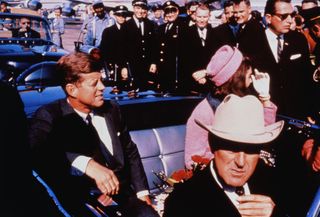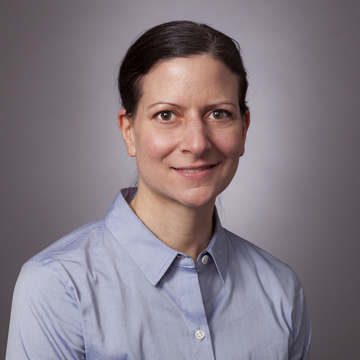Trump Orders Release of 2,800 JFK Assassination Files, Holds Back Others

Updated at 6:51 p.m. ET.
In a long-awaited declassification of files related to the 1963 assassination of John F. Kennedy, President Donald Trump said this afternoon that he was releasing to the public 2,800 documents, while holding back others due to national security concerns.
In a White House memo, Trump said that "the American public expects — and deserves — its Government to provide as much access as possible to the President John F. Kennedy Assassination Records (records) so that the people may finally be fully informed about all aspects of this pivotal event. Therefore, I am ordering today that the veil finally be lifted. At the same time, executive departments and agencies (agencies) have proposed to me that certain information should continue to be redacted because of national security, law enforcement, and foreign affairs concerns," according to news reports.
He added that he is ordering agencies to review the redactions and after 180 days, "I will order the public disclosure of any information that the agencies cannot demonstrate meets the statutory standard for continued postponement of disclosure under" parts of the President John F. Kennedy Assassination Records Collection Act of 1992.
That act mandated that all assassination-related files (which consist of more than 5 million pages) be housed in a single public collection in the National Archives and Records Administration. The act, passed on Oct. 26, 1992, required all these documents to be in the public collection no later than 25 years after the act was passed, according to the National Archives. [10 Persistent John F. Kennedy Conspiracy Theories]
What should the public, and conspiracy theorists, expect?
Many theorists don't buy the "lone gunman theory.” Instead, they suspect former U.S. Marine Lee Harvey Oswald didn't act alone, even though the Warren Commission's investigation concluded that he alone fired the three shots along Kennedy's motorcade route on Nov. 22 of that year. A week after JFK's assassination, his successor, Lyndon B. Johnson, ordered an investigation of Kennedy's death, which was led by then-Chief Justice Earl Warren, so it was informally named the Warren Commission.
Sign up for the Live Science daily newsletter now
Get the world’s most fascinating discoveries delivered straight to your inbox.
Did Oswald have ties to the mafia? A Gallup poll taken just days before the 50th anniversary of the Kennedy assassination revealed that 13 percent of Americans believed the Mafia was behind the killing.
The Times reported that historians and conspiracy theorists are particularly eager to find out if Oswald had ties to the Mafia, the CIA, the Soviets, the Cubans or even the FBI.
But perhaps no juicy revelations or details will come of the released documents.
"I don't think it will turn the case on its head," Gerald Posner, who wrote the 1993 book "Case Closed" (Random House), told the Times. In his book, Posner concluded Oswald was the lone killer.
"We're not going to find some secret memo from J. Edgar Hoover [director of the FBI at the time] drawing out the escape path for Lee Harvey Oswald," he said in the Times article. "The public expectations are very high — they've heard about secret files, they know they’ve been locked up for all these years. The average person may think there's a bombshell in there."
According to the National Archives, the collection includes approximately 2,000 cubic feet (85 cubic meters) of records, though most of them were already public before today.
As for why there are so many conspiracy theories surrounding JFK's death and why they have persisted, social scientists and psychologists provide several explanations that are true for even non-JFK conspiracies. They can bring comfort, as the theories can give some people a feeling of a sense of control, psychologists say. And certain personality types, such as those who feel alienated or have paranoid tendencies, are more prone to believing conspiracy theories.
Kennedy conspiracies, in particular, have become part of the larger culture, Joe Uscinski, a political scientist at the University of Miami who has researched conspiracy beliefs, told Live Science in 2013.
"Everybody has had either a high-school history teacher or a college political science professor that has said something about it that lends itself to conspiracy theory. That's how we're brought up," Uscinski said.
Original article on Live Science.

Jeanna served as editor-in-chief of Live Science. Previously, she was an assistant editor at Scholastic's Science World magazine. Jeanna has an English degree from Salisbury University, a master's degree in biogeochemistry and environmental sciences from the University of Maryland, and a graduate science journalism degree from New York University. She has worked as a biologist in Florida, where she monitored wetlands and did field surveys for endangered species. She also received an ocean sciences journalism fellowship from Woods Hole Oceanographic Institution.
